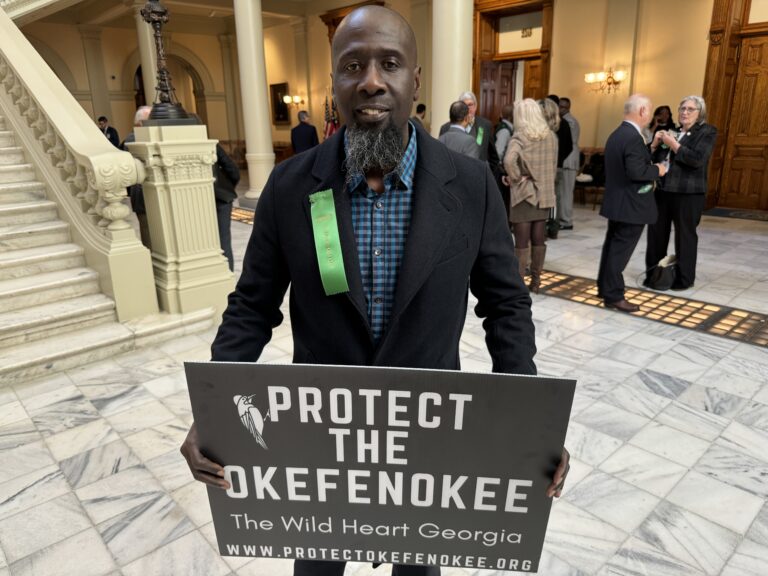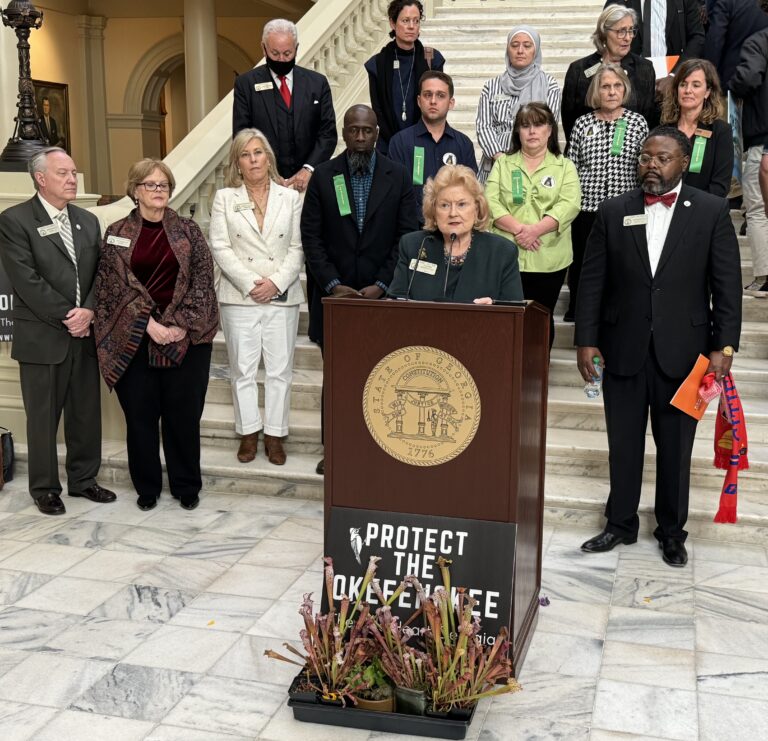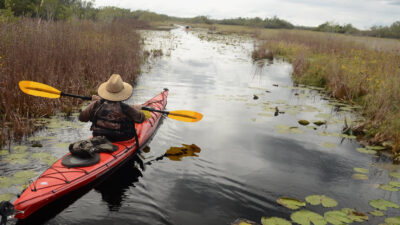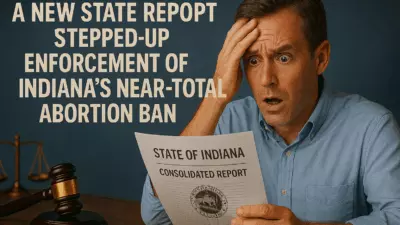Antwon Nixon was attending a Juneteenth celebration in his hometown of Folkston more than two years ago when he first noticed signs urging protection of the Okefenokee Swamp.

Nixon, who grew up visiting the swamp as a kid, was startled to learn about an Alabama-based company’s plan to mine Trail Ridge near the Okefenokee National Wildlife Refuge for titanium dioxide and zirconium. He was even more stunned to learn that the proposal was already two years along by the time he heard anything about it.
So, the local pastor went to work making sure other locals were aware of the mining operation proposed for a site nearly three miles from the refuge’s border. He also regularly takes others to the refuge in hopes of sparking a connection with the swamp with more people.
“In order for Atlanta to move, the local community has to move, because the local community always moves Atlanta. So, I believe our voices in the community have to be louder,” Nixon said during a recent trip to the state Capitol, carrying with him a local petition with more than 500 signatures.

Opponents of the mining proposal are trying to ramp up pressure on lawmakers to pass a measure that some see as the best shot at protecting the ridge from mining. They recently held a press conference at the state Capitol that featured swamp-dwelling pitcher plants and two people dressed in alligator costumes.
The House bill, sponsored by Thomasville Republican Rep. Darlene Taylor, would not stop the 582-acre demonstration proposal that is still pending with the state Environmental Protection Division. But it would block any expansion of that project or any future mining proposals at Trail Ridge.
Taylor has said she wants to protect the Okefenokee Swamp – where she visited regularly as a child – from the kind of deterioration seen at the Florida Everglades.
“If the mine is permitted, it is likely to lead to additional mining along the ridge,” Taylor said.
Taylor’s bill has garnered 94 signatures from a bipartisan collection of lawmakers since it was first filed last year. A bill needs 91 votes to pass the House, suggesting her measure might clear the House with a few votes to spare if given the opportunity.
But the bill has been stuck in committee, where a post-Crossover Day hearing was held last year but no vote was allowed. Taylor, who as chair of a House budget subcommittee holds a leadership role in the House, said she’s hoping for more progress this year.
“The people want it. It will pass the House when it comes to the floor,” Taylor said at the recent press conference. “And I ask that our General Assembly use this opportunity to save the Okefenokee for everyone.”
Rep. Lynn Smith, a Newnan Republican who chairs the House Natural Resources and Environment Committee, declined to comment on the bill’s future in her committee Thursday, other than to say there is a lot of interest on both sides of the issue.
Other lawmakers deferred to EPD.
“That’s their purview,” said Sen. Mike Hodges, a Brunswick Republican who represents the area near the swamp and who also serves as a governor’s floor leader in the Senate.
The current mining proposal may be in EPD’s hands, but the division’s director said last year that any kind of blanket prohibition on mining at Trail Ridge is a policy question for lawmakers to puzzle over.
While advocates press for action at the state Capitol, the company, Twin Pines Minerals, is trying to make the case that it can mine Trail Ridge without harming the swamp.

The company faced a slight setback last month when it agreed to pay a $20,000 fine related to its drilling of exploratory boreholes for the project. An attorney for Twin Pines told the Current that the company paid the fine even though it disagreed with EPD’s findings.
The project’s supporters argue the project would bring jobs to an area that needs them. An attorney for the company said at last year’s hearing that the minerals at the ridge were worth “billions” and that blocking the project’s expansion legislatively would represent “a taking of private property.”
Opponents counter that the ridge plays a vital role in maintaining the swamp’s water levels and, therefore, supporting the refuge’s famously diverse ecosystem. They also say the refuge is there for everyone to enjoy and that mining threatens the tourism industry, which boosts the local economy.
Some key developments have also happened since last year. Chief among them is a formal proposal to name the refuge a UNESCO World Heritage Site, which would firmly cement the swamp’s status as an international tourist destination and put it in the same sphere as the Grand Canyon and Yosemite National Park.
Fourteen cities and counties, mostly in southeast Georgia near the swamp but including a local government as far away as DeKalb County, have also passed resolutions urging protection of the Okefenokee Swamp.
Most recently, the Savannah City Council passed a resolution last month urging the governor to direct state regulators to deny all permits for the project and calling on lawmakers to pass Taylor’s bill.
Altogether, these areas represent more than 1.1 million Georgians.
State Rep. Mary Frances Williams, a Marietta Democrat who serves on the committee where Taylor’s bill is held up, said she has caught flak from her colleagues who represent territory near the swamp for her efforts to stop mining near the swamp. Williams says they have told her the issue is none of her business.
“I disagree. I personally feel like the Okefenokee is a world treasure. I think it’s something that belongs to Georgia, to the nation,” she said.
Jill Nolin has spent nearly 15 years reporting on state and local government in four states, focusing on policy and political stories and tracking public spending.
The Georgia Recorder is an independent, nonprofit news organization that is focused on connecting public policies to stories of the people and communities affected by them. We bring a fresh perspective to coverage of the state’s biggest issues from our office a few blocks from Georgia’s Gold Dome. Our perch might be near the Capitol in downtown Atlanta, but the communities we care about are found in all corners of Georgia, from the mountains of Blue Ridge to the flatlands of Bainbridge.







